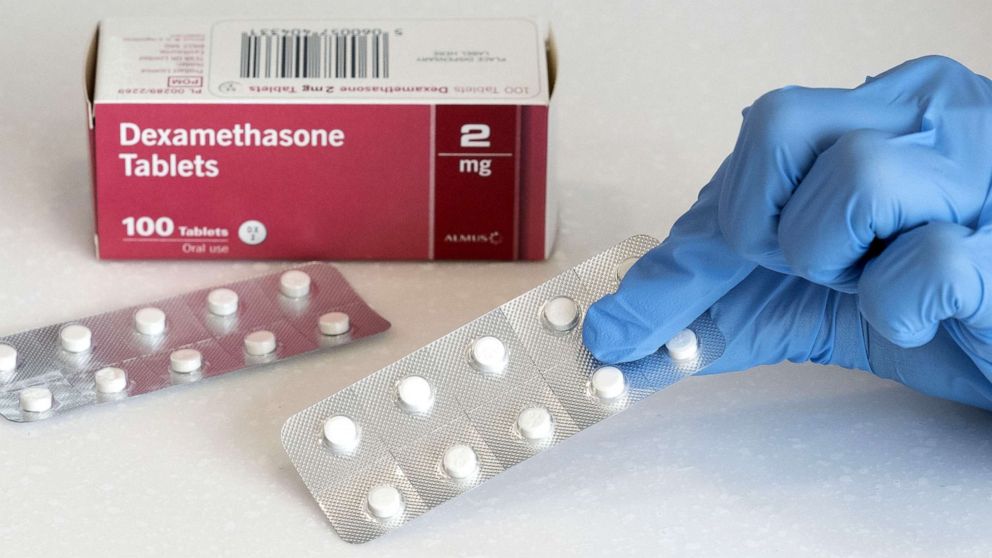
Last week, a study in the United Kingdom found that dexamethasone, a common steroid, increased survival in seriously ill COVID-19 patients who needed help breathing.
Within days of that report, weekly demand for dexamethasone increased by more than 600% in the US, according to data from health care performance improvement company Vizient. That figure coincides with what is happening globally, as the Director-General of the World Health Organization, Tedros Adhanom Ghebreyesus, said that demand for the drug “increased” following the UK trials.
Dexamethasone now represents the second pharmaceutical treatment that has been shown to work for COVID-19. An antiviral medication, remdesivir, was shown to help hospitalized patients leave the hospital earlier.
Following positive data on dexamethasone, the UK government quickly approved the use of steroids in patients with COVID-19.
In the United States, Secretary of Health and Human Services Alex Azar said Friday that the drug was added to treatment guidelines, and the Infectious Diseases Society of America announced Thursday that doctors should consider using the steroid in hospitalized patients with COVID-19.
Even given the recent surge in demand, experts say there is no immediate threat of drug shortages.
Although promising, dexamethasone has only been shown to help patients who have severe COVID-19 and need help breathing, through ventilation or oxygen assistance. Steroid treatment does not help people with milder COVID-19 disease, which accounts for the majority of cases. Dexamethasone has also not been shown to prevent COVID-19 infections.
In fact, it may not be safe to use in patients with mild illnesses. In the UK study, dexamethasone “does not significantly increase death if used in milder patients with COVID-19,” said Dr. Todd Ellerin, director of Infectious Diseases at South Shore Health. He cautioned that for patients with milder COVID-19 disease, “the risks of the medication are likely to outweigh the benefits.”
Even in severely ill novel coronavirus patients, there is still some caution around the use of dexamethasone.
“We have many, many documents showing steroid benefits and harms for critically ill patients, so many physicians can expect some additional data,” said Erin Fox, a drug shortage expert at the University of Utah.
According to Fox, there has been a shortage of certain forms of injectable dexamethasone since 2011, where “in some cases the exact size or strength that was desired could not be obtained.”
The good news is that both intravenous and oral dexamethasone were used in the UK study, and either can be used to help critically ill patients with COVID-19.
“Dexamethasone is widely used in all hospitals,” added Fox. “Even small rural hospitals would keep some in stock.”
Steven Lucio, vice president of pharmacy solutions at Vizient, said: “Hopefully we will be able to handle the supply situation,” as there are multiple providers of oral and injectable dexamethasone.
That said, the drug still needs to be administered prudently, Ellerin said, adding: “We have to be careful not to accumulate dexamethasone, or that will almost guarantee that we are in short supply.”
This situation contrasts with concern over the growing demand for oxygen concentrators, a critical resource for the treatment of severe cases of COVID-19 that is outstripping supply. Tedros has noticed how 80% of the market is controlled by a few companies.
Flattening the curve, which requires fewer treatment supplies, is perhaps the surest way to prevent a shortage of critical supplies, said Dr. Rajesh T. Gandhi, a member of the American Society for Infectious Diseases.
With frequent hand washing, wearing masks, and social distancing, Gandhi added, “We know how to prevent these cases.”
Hassal Lee, a neuroscience doctor. and a medical student at the University of Cambridge, he is a collaborator of the ABC News Medical Unit. Sony Salzman is the coordinating producer for the unit.
.